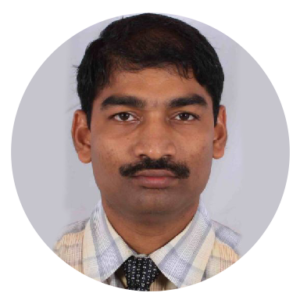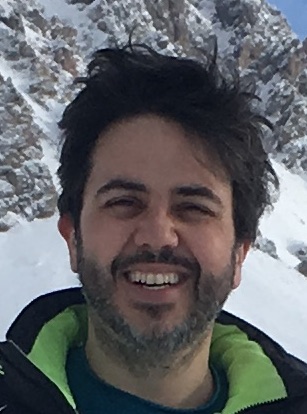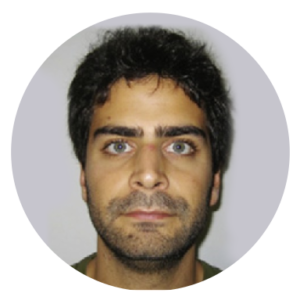PEOPLE. LUCA SCHENATO. HYCON2.
Workshop on Large-Scale Complex Control Systems
Thursday 30 August 2012, University of Lille, France joint with ICSCS’12 conference
The International Workshop on Large-scale complex control systems is organized within the FP7 Framework HYCON2. The workshop is intended to expose the participants to some of the most recent advances in the area of networked control systems and large scale self-organizing systems, obtained by the HYCON2 members.
In particular, large scale complex systems together with traffic and transportation, the smart energy grid, smart cities and buildings, biological networks, and convergence of social sciences and information technology, form the bulk of EU Horizon2020. Large scale complex systems share the feature of being a large collection of autonomous agents which are interconnected by a physical or a communication network, or both. Technology has reached a level that allows us to control or to change the interaction rules of these systems. The potential benefit is therefore enormous, but also the risk of a dramatic failure if the control system is not properly designed. The main challenge is thus the development of mathematical tools for understanding the behavior of such complex systems and the effect of the control strategies we are planning to introduce.
This workshop is intended to expose the participants to some of most recent advances in this area developed by the members of HYCON2 and in particular within the Work Packages “WP2: Networked Control” and “WP4 System-wide coordination and control”. The workshop is complemented with keynote speeches from researches working on the “application side” in smart transportation, smart cities and smart buildings.
Registration
Registration:
Registration fee for “International Workshop on Large-Scale Complex Control Systems” is 100Euro for HYCON2 members and free for ICSCS registered participants. In case of any question about registration, please contact the Organizing Secretariat (e-mail: Icscs2012@univ-lille1.fr). For questions about the technical program, please contact Prof. Luca Schenato (e-mail: schenato@dei.unipd.itScientific Committee
- Antonio Bicchi University of Pisa, Italy
- Maria Domenica Di Benedetto University of L’Aquila, Italy
- Luca Schenato University of Padova, Italy
- Sandro Zampieri University of Padova, Italy
Technical Program
8:30-9:30 Keynote speaker: S. Senthilmurugan (ABB India) "Smart water systems" (Chair: Maria Domenica DI Benedetto (UNIVAQ))
9:30-11:00 Keynote speaker: Markos Papageorgiou (Tech. Univ. of Crete) "Control Issues in Road Traffic Networks" (Mariana Netto, IFSSTAR)
11:00-11:30 Coffee Break
11:30-13:00 Keynote speaker: Giacomo Como (Lund Univ.) " Robustness of distributed routing in dynamical networks" (Sandro Zampieri, UNIPD)
13:00-15:00 Lunch & WP2/WP4 Commitee meetings
15:00-15:30 Poster session presentations by chairs: Stefano Falasca and Simone Martini (UNIPD)
15:30-18:00 Poster session & Coffee Break
Keynote Speakers
Smart water systems

S. Senthilmurugan (ABB India)
Abstract: Up to 45% of water is lost due to leaks in an aging water infrastructure around the world. According to the United Nations, two thirds of world's population is projected to face water scarcity by 2025. To address these foreseen challenges, it is necessary to improve the management of water systems in the next few years to minimize water loss and energy usage. “Smart water systems” are hold the promise to ensure zero water loss and optimal energy consumption. These systems consists smart instrumentation, information communication technology (ICT), intelligent solutions, and asset management solution. Smart instrumentation to accurately measure the process conditions is available but is not affordable for water distribution applications in most parts of world, where water is assumed to be free. ICT is important to connect people, systems and objects to enable interaction with each other in entirely new ways. The intelligent system will make use of both smart instrumentation and ICT system to enable smart and energy efficient operation as well as timely maintenance of water systems. The intelligent system includes; (i) decision support system for alarm statistics, intervention strategy, and tactical decision support; (ii) Leakage management for early incident identification, leakage monitoring and, assessment and leakage location support; (iii) management for supervisory pressure control and automatic network simplification; and (iv) energy management by scheduling key components, such as pumps, water and waste water treatment plants. Asset management is the key component of the smart water system. This component will improve the working life of the water system infrastructure by allowing optimal maintenance cycle and optimizing maintenance workflow. Biography: Dr. Senthilmurugan received his M, Tech., and Ph.D. degrees in chemical engineering from Indian Institute of Technology Delhi in 2002 and 2005, respectively. He is currently working with ABB India as Technology manager for Water Industry Global Initiative. Prior to that, from 2007 to 2011, he was working in ABB Corporate research Center Bangalore as scientist; form 2005 to 2007 perused post doctoral research activities in Department of Atomic Energy Government of India in the area of nuclear fuel reprocessing technologies. His current research interests includes the Modeling, simulation and optimization of water applications.Control Issues in Road Traffic Networks
Markos Papageorgiou
Department of Production Engineering and Managament
Technical University of Crete, Greece
Abstract:
Daily traffic congestion on urban road and motorway networks around the world continues to increase, with detrimental effects on travel times, traffic safety, fuel consumption and environmental pollution. The annual cost of traffic congestion on European roads is estimated to approach 100 b€ or 1% of the GDP. Traffic congestion is only partly due to high demand, since the appearing congestion degrades the expensive infrastructure capacity essentially at the only times it is actually needed, i.e. during the daily peak periods. Traffic control measures, if properly designed and deployed, may lead to substantial savings of travel time, fuel consumption and environmental impact, along with an improvement of traffic safety. The presentation will outline the related traffic control problems and methods, with a focus on practicable results. More specifically, the areas of urban signal control; motorway traffic control (local and coordinated ramp metering, variable speed limit control, mainstream traffic flow control); merging traffic control; and route information and guidance will be addressed, along with the presentation of some selected field results.
Biography:
Markos Papageorgiou received the Diplom-Ingenieur and Doktor-Ingenieur (honors) degrees in Electrical Engineering from the Technical University of Munich, Germany, in 1976 and 1981, respectively. He was a Free Associate with Dorsch Consult, Munich (1982-1988), and with Institute National de Recherche sur les Transports et leur Sécurité (INRETS), Arcueil, France (1986-1988). From 1988 to 1994 he was a Professor of Automation at the Technical University of Munich. Since 1994 he has been a Professor at the Technical University of Crete, Chania, Greece. He was a Visiting Professor at the Politecnico di Milano, Italy (1982), at the Ecole Nationale des Ponts et Chaussées, Paris (1985-1987), and at MIT, Cambridge (1997, 2000); and a Visiting Scholar at the University of California, Berkeley (1993, 1997, 2001, 2011) and other universities. Dr. Papageorgiou is author or editor of 4 books and of some 400 technical papers. His research interests include automatic control and optimisation theory and applications to traffic and transportation systems, water systems and further areas. He is the Editor-in-Chief of Transportation Research – Part C. He also served as an Associate Editor of IEEE Control Systems Society – Conference Editorial Board, of IEEE Transactions on Intelligent Transportation Systems and other journals. He is a Fellow of IEEE. He received a DAAD scholarship (1971-1976), the 1983 Eugen-Hartmann award from the Union of German Engineers (VDI), and a Fulbright Lecturing/Research Award (1997). He was a recipient of the IEEE Intelligent Transportation Systems Society Outstanding Research Award (2007) and of the IEEE Control Systems Society Transition to Practice Award (2010). He was presented the title of Visiting Professor by the University of Belgrade, Serbia (2010). The Dynamic Systems and Simulation Laboratory he has been heading since 1994, received the IEEE Intelligent Transportation Systems Society ITS Institutional Lead Award (2011).
Robustness of distributed routing in dynamical networks
Giacomo Como
Department of Automatic Control Lund University, Sweeden Abstract: As transportation demand is fast approaching its infrastructure capacity, a rigorous understanding of the relationship between the dynamical properties of transportation networks and realistic driver route choice behavior in response to the available information is attracting large research interest. Such an analysis is essential, among other things, for appropriate design of incentives influencing drivers’ behavior in order to induce a desired socially optimal usage of the transportation infrastructure. A particularly relevant issue is the network behavior in response to unexpected disruptions, which have the potential to spread and be amplified by the network dynamics, and possibly lead the system to global collapse. In this talk, we consider dynamical models of transportation networks in which the drivers’ route choices are influenced by information at multiple temporal and spatial scales. The considered models involve a continuum flow of drivers commuting between a common origin/destination pair. The drivers' route choices are affected by their, relatively infrequent, perturbed best responses to global information about the current network congestion levels, as well as their instantaneous local observation of the immediate surroundings as they transit through the network. The drivers’ route choice behavior is characterized by their preference toward globally less congested paths as well as myopic decisions in favor of locally less congested paths. The simultaneous evolution of the traffic congestion on the network and of the aggregate path preference is modeled by a system of coupled ordinary differential equations. First, we analyze stability of this system showing that, if the frequency of updates of path preferences is sufficiently small as compared to the frequency of the traffic flow dynamics, then the state of the transportation network ultimately approaches a neighborhood of the Wardrop equilibrium, i.e., a configuration in which the delay associated to any source-destination path chosen by a nonzero fraction of drivers does not exceed the delay associated to any other path. Then, we study robustness properties of the fast-scale distributed routing dynamics. In particular, we characterize the margin of resilience of such dynamical transportation networks, defined as the minimum sum of link-wise flow capacity reductions that make the system unstable. Our analysis suggests a simple convex cost to be used when optimizing equilibrium flows of the unperturbed transportation network using tolls. Finally, we study a variation of the above dynamical transportation network model, which allows for cascaded failures and analyze the network resilience properties in this setting. Biography: Giacomo Como received the B.Sc., M.S., and Ph.D. degrees in applied mathematics from the Politecnico di Torino, Italy, in 2002, 2004, and 2008, respectively. He is currently an Assistant Professor with the Department of Automatic Control, Lund University, Sweden. During 2006–2007, he was a Visiting Assistant in Research with the Department of Electrical Engineering, Yale University. From 2008 to 2011, he was a Postdoctoral Associate at the Laboratory for Information and Decision Systems, Massachusetts Institute of Technology. His current research interests include the mathematics of control and information theory, and dynamical systems over networks.Poster session
UNIT | AUTHORS | TITLE |
ETH | Nikolaos Kariotoglou, Sean Summers, Davide M. Raimondo and John Lygeros | Stochastic reachability specifications for self-organizing network surveillance systems |
EC-Lille | C. Fiter, L. Hetel, W. Perruquetti, J.-P. Richard | A polytopic approach for state-dependent sampling |
UNIVAQ | Maria D. Di Benedetto, A. D’Innocenzo, E. Serra | Fault Tolerant Control of Multi-Hop Control Networks |
UNIVAQ | Alessandro Borri, Giordano Pola, Maria D. Di Benedetto | A Symbolic Approach to the Design of Nonlinear Networked Control |
UNIVPV-UNIVAQ | Antonella Ferrara, Domenico Bianchi, Giancarlo Ferrari Treccate, Maria Domenica Di Benedetto | Networked Control for Traffic Systems |
TU Delft | Noortje Groot, Mohammad Hajiahmadi, Bart De Schutter, Hans Hellendoor | Mixed Integer Linear Programming Approaches for Model-based Predictive Traffic Control |
TU Delft | Zhe Cong, Alfredo Núñez, Bart De Schutter, Robert Babuška | Computational Intelligence Methods for Traffic: Traffic Monitoring using Distributed Interval Fuzzy Models and Ant Colony for Dynamic Traffic Routing |
TU Delft | Minh Dang Doan, Tamás Keviczky, Bart De Schutter | A distributed model predictive control method using Fenchel's duality for networked systems |
KTH | Martin Jakobsson and Carlo Fischione | A Comparative Analysis of the Fast-Lipschitz Convergence Speed |
UNITN, ISS-SUPELEC | Daniele Fontanelli, Luigi Palopoli, Luca Greco | Deterministic and Stochastic QoS Provision for Real-Time Control Systems |
UKS | D. Gross, M. Jilg, O. Stursberg | Data Distribution in Distributed Model Predictive Control |
IFSTTAR-LTN | Alexandre De Bernardinis, Gérard Coquery | EV-Electrification: failure modes and related safety aspects |
University of Evry, France | Lydie Nouveliere | How to better eco-drive with a light vehicle using embedded systems? |
UNIPI | Stefano Falasca, Massimiliano Gamba, Luca Greco, Antoine Chaillet, Antonio Bicchi | An output-feedback dynamic approach for the control over packet-switching network |
UNIPI | S. Martini, A. Fagiolini, and A. Bicchi | Behavior Classification, Security, and Consensus in Societies of Robots |
IFSTTAR | Mariana Netto, Jean-Marc Blosseville | In-vehicle embedded control systems for safety and mobility: use cases in relation with the needed actuator and sensor units and the human-machine cooperation |
UNIPD | D. Borra, E. Lovisari, R. Carli, F. Fagnani, S. Zampieri | Autonomous Calibration Algorithms for Networks of Cameras |
UNIPD | S. Bolognani, S. Zampieri | Distributed reactive power compensation in a smart microgrid |




